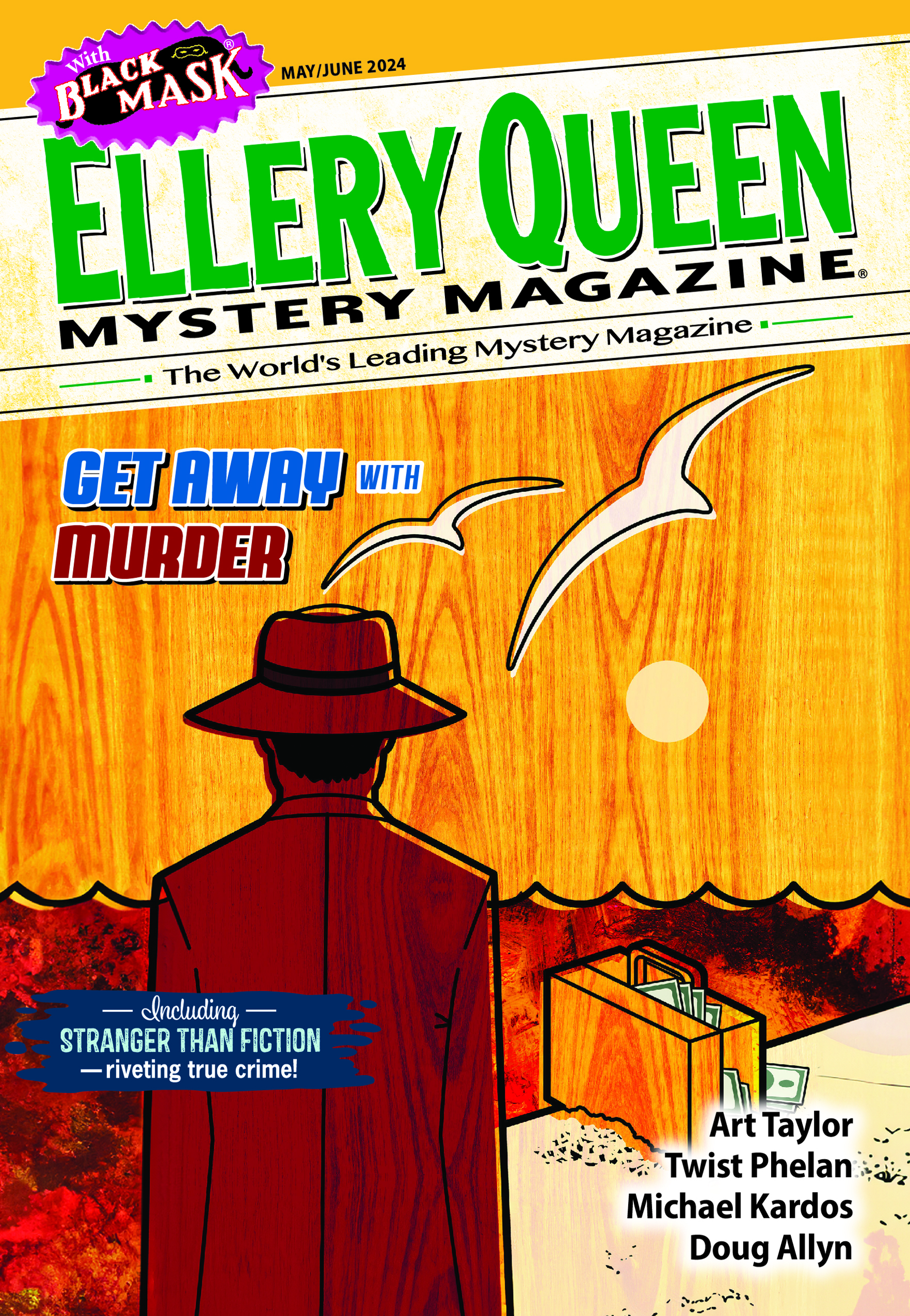An award-winning writer of novels, short stories, poems, radio plays, and stage plays, Michael Z. Lewin has the experience to speak knowledgably of the writing life. In his post this week he considers a writer’s need to connect with other writers. The timing of his piece could not be better, for in a few days more than a thousand writers and mystery-fiction fans will be gathering in Cleveland for the Bouchercon World Mystery Convention. One of Michael Z. Lewin’s EQMM stories (“Who I Am”) is nominated for a Shamus Award at that convention. His latest novel is Family Way (Five Star Press). —Janet Hutchings
It was eight years after I published my first mystery that it finally occurred to me to meet with someone else who was doing the same thing. Anyone with any sense knows there are pleasures to be had and perceptions to be shared by talking shop. But there are lots of areas of my life in which I’ve been a slow learner.
The writer I sought out was Ross Macdonald and I met with him in Santa Barbara, California. I was already living in England, but when I planned a trip to visit my mother, who lived in L.A., I wrote to Macdonald. Not only had he written a generous review of my second novel, it was one of his books that got me started writing detective fiction in the first place.
I never read mysteries until my mid-twenties. When I did, it was P.I. fiction that appealed to me, but the plots left me puzzling. I just never remembered early details of the intricate and winding journey the stories took when they were explained at the end. Was it me, or were these P.I. writers just conning readers by throwing piles of facts at them that didn’t add up?
Now I look at that as the question of a cynical innocent—one truly ignorant of how much effort writers put into their books. But in 1969 I decided to find out. I took one of Ross Macdonald’s novels and outlined it, page by page. And, surprise surprise, I discovered that the story was indeed a coherent whole. It was me, the reader, who was deficient.
I’d picked the Macdonald novel for much more than its plot complexity. I enjoyed his literate writing and wit. And when I applied myself to his book this way I found that the detective stuff stuck in my mind. The result was, I began a jokey short story. That story failed to finish itself in a couple of weeks. It became my first Albert Samson novel, Ask the Right Question, the plot of which takes an intricate and winding journey. . . .
So, accompanied by my two children, I met Ross Macdonald by the pool at the Santa Barbara club where he regularly took his lunch. By then, I’d written six mysteries. And I asked him my burning question. “Does it ever get easier?”
“No,” he said.
Many years have passed since that lunch. I have written many, many words. And although I’ve learned that talking with other writers makes life pleasing and less lonely, I’ve also learned that Macdonald didn’t lie. It doesn’t get easier. I’ve even learned that I’m not the only young writer to hope that it did. For instance, Liza Cody tells me that she once asked the legendary H.R.F. Keating the exact same question. And Harry Keating gave her the exact same answer that Ross Macdonald gave me.
And I know the truth of it now. I may have learned how to do a few things more easily that I used to find hard. Like what to do if my plot is weak (leave explanation of it as late as possible and write “The end” quickly) or learning that it’s less confusing for readers if characters’ names begin with different letters.
But writing doesn’t get easier. Because your own standards get higher. And higher.
I was working on my current book this morning. I’ve gone through the text half a dozen times. Today I found a place on page 225 that contradicts something on page 87. The contradiction was subtle and not very important. And should a reader get as far as 225 he or she would—I hope—be so swept up in the gathering pace and revelations that a mini-goof on page 87 would be long brushed away. And how can anyone remember all the details of a complex story after just one reading anyway? This writer certainly can’t. Who knows what I’ll find on the seventh reading.
But that subtle contradiction mattered to me. As will the one I fear I will find tomorrow. But I will search for it. Because I need what I write—novels, stories or blog contributions—to be as good as I can make them on the day. Not Shakespeare good, but clear, and with a decent chance of a reader being able to get at what I mean to say. Should he or she be interested.
Wise man, Ross Macdonald, as well as a fine and complex writer.


Wonderful piece, and a all-too-true observation. Thank you!
I asked myself this very question only recently, and arrived at the same answer. Nice piece, Michael, and well put.
In studying the Lew Archer novels of Ross Macdonald I’ve tried to identify certain characteristics, themes, motifs, images – call them what you like – that crop up frequently throughout the various books. I don’t claim that the following are particularly important or have any special significance or meaning; nor do I say this is a comprehensive list. They are simply some things I’ve noticed in more than one of the novels. Some of these appear in quite a few of the Archers. In time I hope to post the results of reading through each of the books individually while searching for these ‘repeaters’.
http://postmoderndeconstructionmadhouse.blogspot.com/2014/12/ross-macdonald-characteristics-of.html#.VPJ31tKUc7V